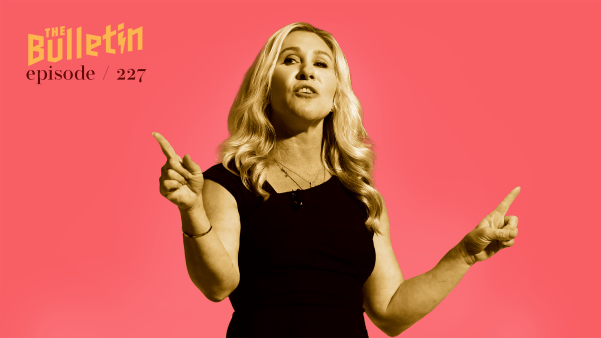Update (March 14): The Samaritan’s Purse staff members taken by armed rebels in South Sudan were released today. All eight kidnapped aid workers are now on their way to a safe location.
The Christian aid group said it was “thankful to God” for the safe release of its South Sudanese national staff, and thanked the World Food Programme for helping to relocate them.
Samaritan’s Purse was forced to evacuate most personnel from the country two weeks ago due to violence, and “calls on all parties to stop hostilities and allow immediate full access to distribute emergency food supplies.”
—–
[Originally posted on March 13 as “Samaritan’s Purse Staff Kidnapped as South Sudan Faces Famine”]
Samaritan’s Purse is “hopeful” that eight local staff members kidnapped by rebels will be released soon.
“Samaritan's Purse confirms that some of our South Sudanese staff in the Mayendit area of South Sudan have been detained by armed personnel,” stated the humanitarian aid organization run by Franklin Graham. “We have been in contact with them, and they have not been harmed. No ransom request has been made, and we are hopeful that they will be released soon and safely.”
A military spokesperson told Reuters today that humanitarian aid was demanded in exchange for the staff members.
It’s a claim that’s easy to believe in a country crippled by famine.
“The situation in Mayendit, South Sudan, is a level 4 famine,” Samaritan’s Purse stated. “We call on all the parties involved to immediately provide complete and unfettered humanitarian access in order to meet the needs of a starving population in order to save lives.”
The famine—officially recognized as such by the United Nations just last month—is an especially frustrating one because it hasn’t been caused by weather or a natural disaster.
"The main tragedy … is that the problem is man-made," said Eugene Owusu, the United Nation's humanitarian coordinator for South Sudan. “The underlining drivers have been there for some time, and we have all known that we have a major food crisis.”
The world’s youngest country, South Sudan gained independence from Sudan in 2011 and fell into civil war two years later. The ethnic war between the Dinka supporters of the president and the Nuer supporters of his rival has raged ever since. Mirroring the Sudanese government—which used starvation as a weapon against the South Sudanese people before the countries split—both sides have attacked herds of cattle and fields of grain.
More than 31,000 South Sudanese have fled to Sudan so far in 2017; more than 3 million of the country’s 13 million people have been displaced in their attempt to escape the conflict and the resulting hunger, according to the UN.
About 5 million people are severely hungry; close to 100,000 “are already starving,” the United Nations Mission in the Republic of South Sudan told the Los Angeles Times.
Even worse, those who need access to food are being blocked by fighters on both sides. Last November, 100 humanitarian aid attempts were blocked; in 67 of those incidents, violence was used against aid workers or supplies, according to the UN.
“We appeal to the international community and friends of the people of South Sudan to provide immediate and large-scale assistance,” the South Sudan Council of Churches stated. About 60 percent of South Sudanese are Christian, according to a 2010 estimate from the Pew Research Center.
“We also appeal to the warring parties to stop the war, to stop harassing our people, to stop the looting of food, and to open credible humanitarian corridors to allow both people and relief commodities to the most needy areas. … Our people are struggling simply to survive,” the council wrote.
South Sudan president Salva Kiir called for a national day of prayer this week: “Our time is now ripe to turn to God and ask Him for forgiveness and blessings. We have not been that prefect [sic] and we need to submit ourselves to the Almighty through prayer.”
But critics say the president’s appeal to “pray, repent, and forgive each other for the problems that we might have committed against one another for the last four years” sounded hollow coming from a man who carries his share of the blame.
“The government is responsible for this catastrophe,” said Edward Dima, president of the Baptist Convention of South Sudan and pastor of First Baptist Church in Kajo-Keji. “They refused the UN agencies to deliver relief to those areas affected by famine. [Last] week alone, the government in Yei river state refused to allow NGOs to deliver food to malnourished children outside Yei town.”
“It is a joke to hear the president of the country calling prayers while at this moment, the soldiers are hunting people across South Sudan,” one Catholic bishop said.
Samaritan’s Purse has been working among the South Sudanese people for more than 20 years—longer than the country has existed.
“Violence and insecurity in the country have led to a rapidly deteriorating economy and have made it nearly impossible for civilians to plant and harvest crops,” the aid organization said. “Typical livestock, such as chickens and goats, can no longer be found, as they’ve been used as a source of food for the community over the years of suffering. The cattle that do remain are thin and unable to produce enough milk for the people.”
In February, Samaritan’s Purse handed out food to more than 105,000 people in South Sudan.
“An additional 16,785 people in Mayendit are receiving food this week,” Samaritan’s Purse stated three weeks ago. “We’re also providing agricultural training, nutrition support, and water, sanitation, and hygiene services to the people there. Crops are springing up as we’re working with farmers in the Mayendit area. … Pray for protection and strength for our teams as they distribute food and minister to those in dire need.”
The conditions in South Sudan—combined with a civil war in Yemen, drought in Somalia, and Boko Haram terrorists in Nigeria—could mean the world’s most severe humanitarian crisis since 1945, UN humanitarian chief Stephen O’Brien recently told the UN Security Council. “People will simply starve to death."









